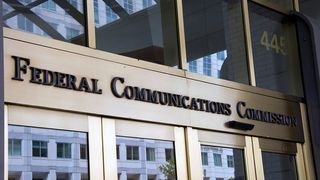FCC Extends Sec. 706 Report Comment Deadline

The FCC has extended, by two weeks, the deadline for input on its latest Notice of Inquiry (NOI) request for the thirteenth Sec. 706 report, which is the extent to which advanced telecommunications is being deployed to all Americans on a reasonable and timely basis.
The new deadlines are Sept. 21 for comments and Oct. 6 for replies.
Various groups had sought longer extensions, as had a dozen Democratic Senators concerned the FCC might lower the target speeds for high speed broadband in potentially declaring wireless to be a substitute for wired access, which previous commissions had not concluded.
Related: FCC Moves September Meeting to the 26th
But the FCC said it thought two weeks was sufficient to give the parties time to analyze the issues raised in the proceeding. It also noted that the Sec. 706 report has a mandatory 180-day time frame, and a longer delay could compromise the FCC's ability to both consider the full record and meet that timetable.
"We find that permitting interested parties an additional two weeks in which to file their comments and reply comments will allow parties to provide the Commission with more thorough comments, ensuring that the Commission has a complete record on which to develop its decisions while giving the Commission sufficient time to meet its statutory obligation," said the FCC's Wireline Competition and Wireline Telecommunications bureaus.
In releasing the notice for input on the new report, the FCC signaled it would likely not continue to require 100% deployment to conclude that broadband was being reasonably deployed. The FCC under previous Democratic chairmen has made that the benchmark, so the reports have said, much to ISPs displeasure, that deployment was not reasonable and timely.
Such a conclusion continues to empower the FCC to regulate to make it reasonable and timely.
FCC Chairman Ajit Pai has been critical of those previous conclusions based on less than 100% availability.
The new inquiry will focus on whether the "progress" toward universal access has been reasonable and timely.
The FCC released the 2016 Sec. 706 report NOI Aug. 4, 2016, but did not issue a report on the findings before FCC Chairman Tom Wheeler exited in January.
In the wake of the FCC, move, one of the senators who called for the delay was chalking it up as a personal victory.
"Sen. Franken Convinces FCC to Give American Families and Businesses More Time To Make Voices Heard about High-Speed Internet Needs," read the headline on a press release from Franken's office, which said the FCC had "agreed to his request."
“While I have serious concerns about the FCC considering at this time whether mobile broadband service at lower speeds could supplant, rather than supplement, fixed broadband services—and conclude that Americans’ broadband needs are being met," he said, "I’m glad that people in Minnesota and across our nation will have more time to make their voices heard.”
Broadcasting & Cable Newsletter
The smarter way to stay on top of broadcasting and cable industry. Sign up below
Contributing editor John Eggerton has been an editor and/or writer on media regulation, legislation and policy for over four decades, including covering the FCC, FTC, Congress, the major media trade associations, and the federal courts. In addition to Multichannel News and Broadcasting + Cable, his work has appeared in Radio World, TV Technology, TV Fax, This Week in Consumer Electronics, Variety and the Encyclopedia Britannica.

